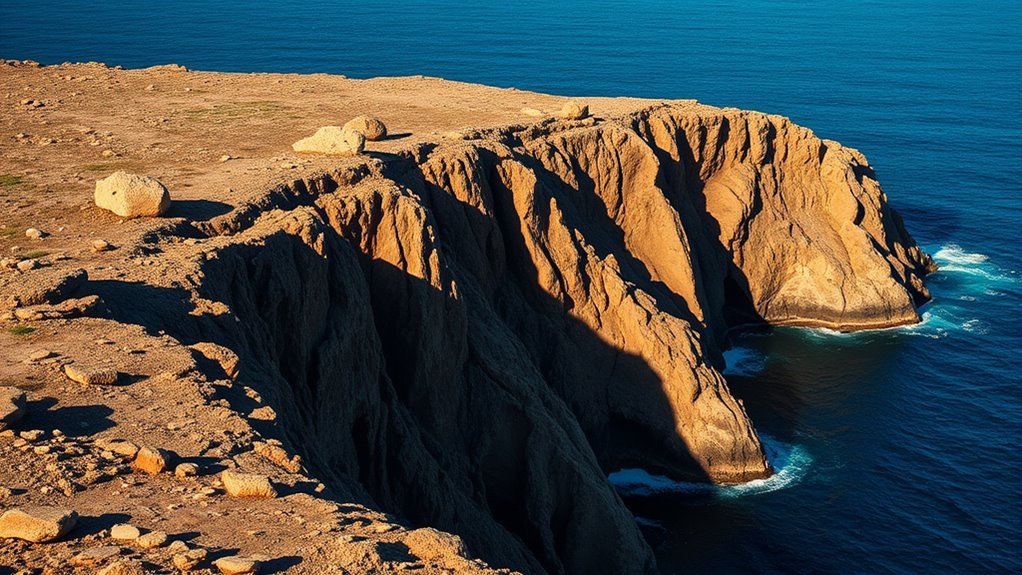Cabo Verde presents lucrative opportunities in tourism, renewable energy, and sustainable agriculture. Boutique hotels, eco-tourism, and specialized travel services are in demand. Solar and wind farms offer strong potential. Success requires navigating bureaucratic hurdles, addressing infrastructure limitations, and building a skilled workforce. Business incubators, trade associations, and government agencies support foreign investors. Local banking knowledge is essential. Further insights await.
Main Points
- Invest in boutique hotels and specialized tourism services catering to discerning travelers.
- Explore renewable energy projects like solar and wind farms, focusing on energy storage solutions.
- Navigate investment challenges through due diligence and by utilizing local legal/consulting firms.
- Leverage government support, business incubators, and trade associations for your Cabo Verde venture.
- Consider sustainable agriculture opportunities to contribute to the local economy.
Untapped Opportunities: Sector Deep Dive
Although Cabo Verde is a developing nation, it boasts a resilient economy with significant potential for growth and investment, particularly within its burgeoning tourism, renewable energy, and sustainable agriculture sectors.
Tourism remains a cornerstone, with opportunities in boutique hotels, eco-tourism, and specialized services catering to discerning travelers.
Renewable energy, driven by abundant sunshine and wind, presents fertile ground for solar and wind farms, alongside energy storage solutions.
Sustainable agriculture, focusing on drought-resistant crops and efficient irrigation, holds promise for both local consumption and export, creating value-added products. These sectors are poised for expansion.
Navigating the Landscape: Challenges and Solutions

Navigating Cabo Verde’s investment landscape requires careful consideration of its unique challenges, which include bureaucratic hurdles, limited infrastructure in some areas, and the need for skilled labor.
Bureaucratic processes, although improving, can cause delays in project implementation; therefore, patience and meticulous documentation are crucial. Infrastructure limitations, particularly outside major urban centers, necessitate thorough due diligence and potentially additional investment.
Addressing the skilled labor gap requires proactive strategies, such as vocational training programs or partnerships with international institutions. Overcoming these hurdles is essential for long-term success in Cabo Verde. Recognizing and proactively addressing these obstacles allows investors to capitalize on the nation’s potential.
Resources for Success: Your Cabo Verde Toolkit
To thrive in Cabo Verde, investors can leverage a variety of resources that can bolster their ventures. Business incubators provide mentorship, office space, and seed funding for startups, fostering innovation and growth. Trade associations offer networking opportunities, industry insights, and advocacy services, connecting businesses and promoting collaboration.
Government agencies such as Cabo Verde TradeInvest provide support to foreign investors, streamlining procedures, offering incentives, and facilitating access to markets.
Legal and consulting firms offer expertise in business registration, compliance, and regulatory frameworks, ensuring adherence to local laws. Language training centers teach Portuguese and Crioulo.
Financial Insights: Banking, Investment and Taxation
Financial literacy forms the bedrock of successful investments in Cabo Verde and beyond. Grasping the nuances of local banking practices is critical for managing funds efficiently.
Investment opportunities span various sectors, each with its associated risk-reward profile. Navigating the tax landscape requires careful planning to optimize returns.
Consider these key aspects:
- Opening a bank account requires specific documentation; understanding these requirements streamlines the process.
- Diverse investment options, including real estate, tourism, and renewable energy, warrant consideration based on individual risk tolerance.
- Cabo Verdean tax laws impact profitability; securing professional advice is highly recommended.
Common Questions
What’s the Best Time of Year to Visit Cabo Verde?
The optimal time to visit Cabo Verde is generally between November and June. During these months, visitors can expect dry weather, minimal rainfall, and pleasant temperatures. This period avoids the wetter and potentially stormy season.
Do I Need to Learn Kriolu to Do Business?
Kriolu isn’t strictly necessary for business in Cabo Verde, but it’s helpful. While Portuguese is the official language, Kriolu is widely spoken. Learning basic phrases can ease communication and foster stronger relationships with local partners and customers.
What Are the Main Cultural Differences?
Cultural differences include a relaxed pace, emphasis on relationships over strict deadlines, and indirect communication. Respect for elders and established hierarchical structures are also important. The culture blends African and Portuguese influences, seen in music, food, and social norms.
Is It Safe to Live and Work in Cabo Verde?
Safety in Cabo Verde is generally good. Crime rates are relatively low, but petty theft can occur. Individuals should exercise normal precautions and avoid poorly lit areas at night. Overall, Cabo Verde is considered a safe place to live and work.
How Do I Find Accommodation Long-Term?
To find long-term accommodation, one should explore online real estate portals specific to Cabo Verde. They can also network locally, contacting real estate agents or expats for leads on apartments or houses for rent. Word of mouth is often valuable too.